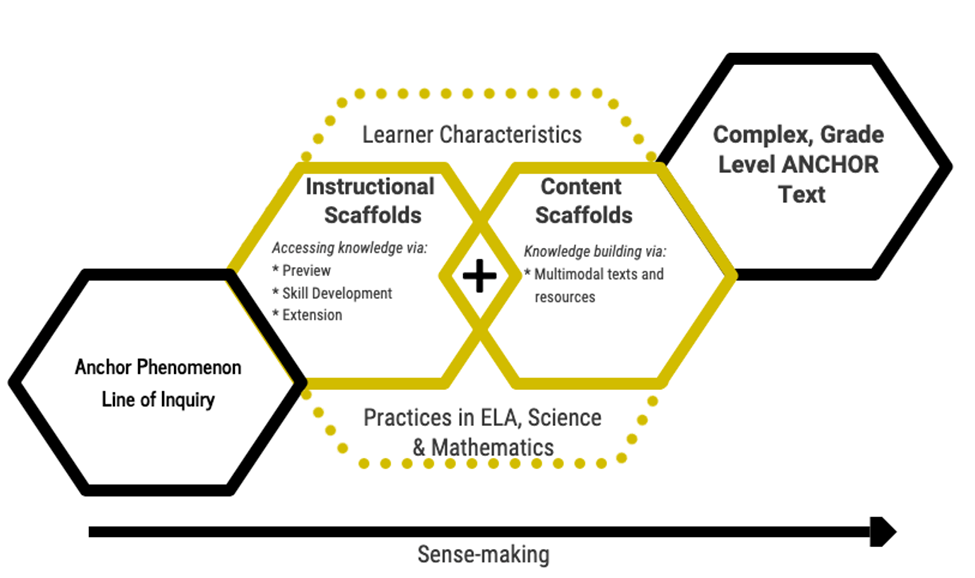Workshop Detail
Linking Science, Mathematics and Literacy for All Learners
We unite science, literacy and mathematics with an emphasis on argumentation as a cross-cutting practice via multimodal STEM text sets.
What is a Multimodal STEM text set?

A multimodal STEM text set is a sequence of “texts” (e.g., online resources, printed text, video, audio) and learning activities that pertain to a specific line of inquiry.
A multimodal STEM text set is designed and organized to build vocabulary and background knowledge for sense making in science with the aim of supporting all learners, including diverse learners in reading high quality complex grade level texts that address STEM standards.
Components of Multimodal STEM Text Set
- Anchor Text: A rich, complex grade level text adapted from published research studies.
- Instructional Scaffolds: Scaffolds designed to support learners to comprehend the content to be learned (e.g., graphic organizer, small group instruction) in response to learner needs (e.g., low reading ability).
- Content Scaffolds: Scaffolds designed to build knowledge and the content to be learned (e.g., simpler text, multimodal texts, inquiry-based learning opportunities).
- Anchor Phenomenon/Line of Inquiry: Overarching concept(s), sometimes thought of as a theme or main topic, that the text set is centered on, that connects to the anchor text.
William Folk
William Folk, PhD., Prof. of Biochemistry, University of Missouri, co-PI, served on the faculties of the University of Michigan Medical School and the University of Texas-Austin before joining the University of Missouri as chair of the Department of Biochemistry. There he was responsible for 25 regular faculty, over 150 staff, and the education of over 300 undergraduate majors, 45 graduate students and 90 medical students. By the end of his tenure, the Department’s external grant support increased five-fold to become MU’s strongest biomedical science department. Dr. Folk initiated efforts that strengthened collaborative research and outreach education with College of Education faculty. When serving as Senior Associate Dean for Research in the School of Medicine, he was responsible for facilitating research and training of medical and graduate students, fellows and junior faculty, and directed the Office of Medical Research. Dr. Folk also served as associate director of MU Health Care’s Ellis Fischel Cancer Center, directed an NIH-funded Center for International Phytotherapy Research (TICIPS) and an NIH-funded Center for Botanical Interaction Studies (MU-CBIS). He has extensive experience with cross-cultural science research and education/learning as a result of collaborations in over a dozen countries, including the implementation of communities of learning and practice. Dr. Folk has mentored 25 PhD students, 20 postdoctoral fellows, and numerous undergraduates and medical students in research training. He leads research programs focusing upon viruses, medicinal plants and botanical supplements and science education. Dr. Folk led an NIH postdoctoral training program at the University of Michigan, a DOD-funded breast cancer research training program for undergraduates at MU, an HHMI science education program (Maps in Medicine), and the ShowMe InABox science enrichment program for middle schools.
